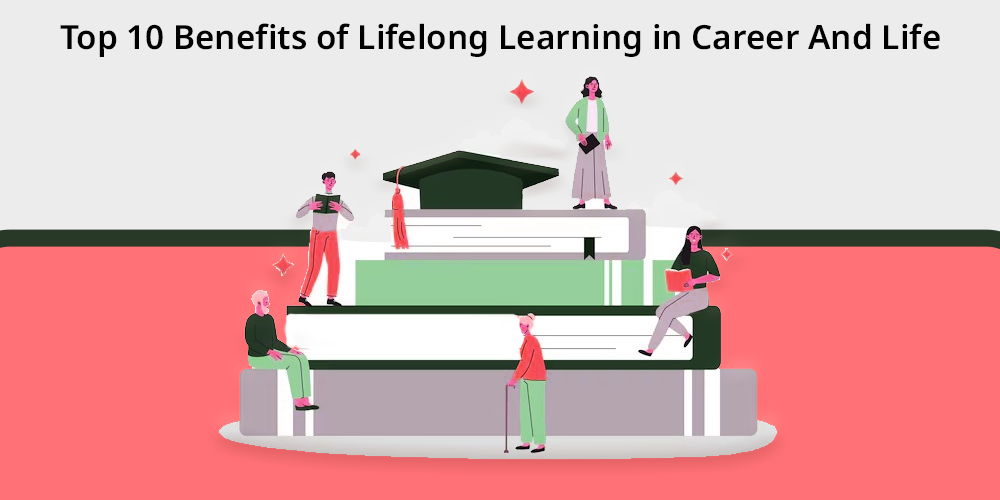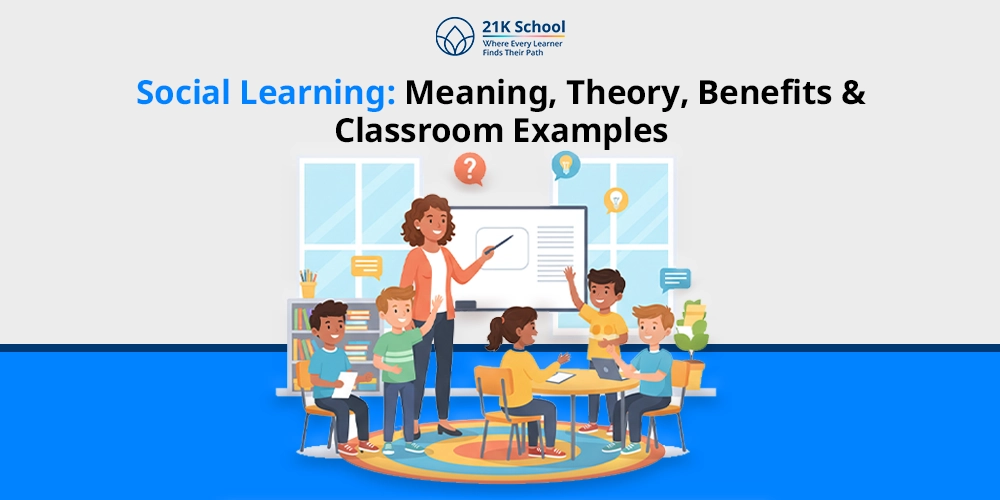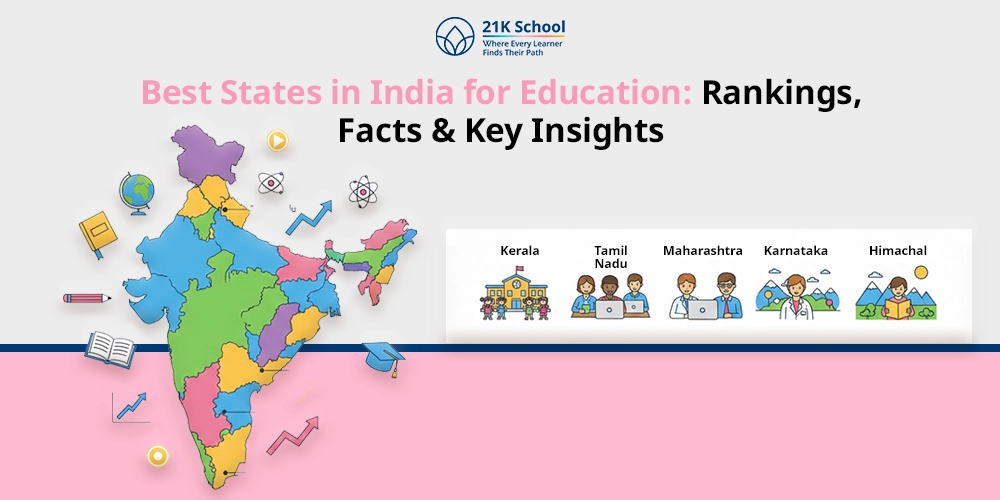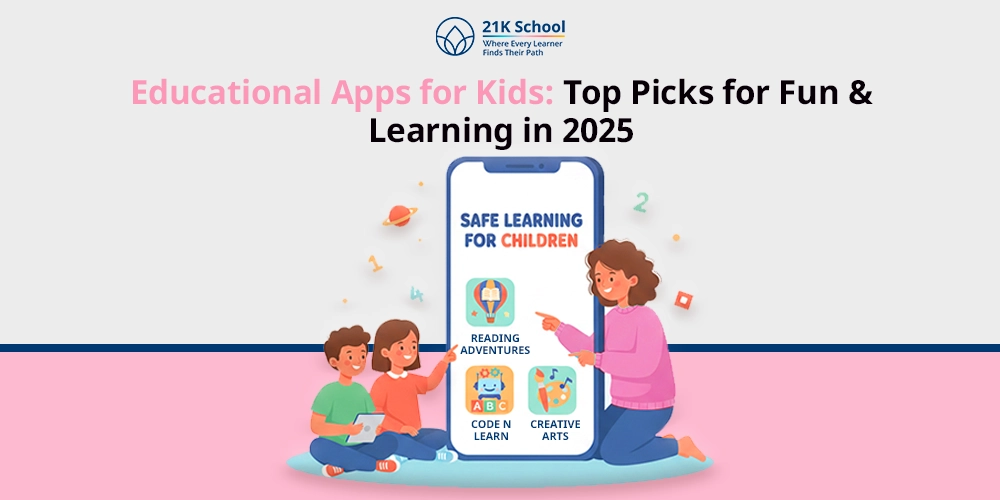
With accelerating times, formal education does not guarantee us to prepare for the struggles to come. Education has a much greater value than just the bounds of our domains.
Lifelong learning realizes this and acknowledges that education shapes our personal and professional growth across the time period. When one is inspired to pursue new ideas, to advance, or seek satisfaction, accepting lifelong learning becomes essential and desirable.
In this article, the essence of lifelong learning is unpacked. Read on for ten compelling reasons why commitment to lifelong learning will make for a richer and more meaningful life.
Contents
- What is Lifelong Learning?
- 10 Benefits of Lifelong Learning
- 1. Improved Self-Reliance and Motivation
- 2. Professional Competence
- 3. Explored Self-Interests
- 4. Experience Better Relationships
- 5. Increased Self-Esteem
- 6. Social and Community Benefits
- 7. Cognitive Development
- 8. Cultural Awareness and Responsibility
- 9. Adaptability and Resilience
- 10. Better Health and Lifestyle
- Measures to Include lifelong learning in Education
- Concluding Comments
What is Lifelong Learning?
It says that there is a continuous pursuit of knowledge on his or her own for personal or professional achievement. It is broad, including the way to learn either from formal education or practical experience. Thus, enabling individuals to update their skills and expand understanding continuously.
Examples of lifelong learning include formal routes (educational courses and qualifications), informal practices (reading, seminar attendance) and hands-on experience (travelling, pursuing passions, or volunteering).
Lifelong learners have a positive and adaptive mind set as they approach life. They are eager to learn and grow while seeing change as intrinsic to personal growth.
10 Benefits of Lifelong Learning
1. Improved Self-Reliance and Motivation
With growing desires for lifelong learning, individuals are likely to achieve increased independence and an active role in self-development. As learners continually exercise their powers, and comprehension, they find comfort in the problem-solving skills and anticipation to adjust.
This means that learners are motivated by their own rewards – satisfaction, interest or fulfillment from progress made. All self-driven aspects as opposed to external influence.
Learning continues to teach people that they can thrive and grow at all stages of life. Humans gain improved self control and perseverance in attempts to overcome problems.
2. Professional Competence
The dynamic labour market implies that one can quickly become unskilled at his job. Through lifelong learning, people remain in touch with their area of work and are competent to increase their status.
In their current profession, they perform better to reposition themselves to other professions if it is required. Fewer firms value conformity and commitment to learning as highly as they value formal accomplishment.
Professional awareness, gaining new digital skills or attaining industry qualification are all fundamental in your career progress or excelling professionally.
3. Explored Self-Interests
Lifelong learning maximizes one’s ability to explore hobbies and interests in the world outside their professional life. Such things as mastering a musical instrument, studying astronomy, gardening, or practicing in creative writing lend life more meaning.
The process often brings to light uncultivated talents and interests that have not been known about in a person. It makes people happy and even reveals undiscovered career or personal interests.
Explore some hobbies for young kids in class .
4. Experience Better Relationships
In the lifelong learning process, common among people are their development of improved communication, empathy and emotional intelligence Submersion into different ideas and cultures will make people more open and understanding towards each other.
Such abilities help bind families and jobs equally. People involved in lifelong learning tend to listen actively, resolve conflicts positively, cooperate in home settings, community, and work environments.
Disagreements are unapologetically a source of understanding and building relationships. Here’s how to make up after a fight with your family.
5. Increased Self-Esteem
Making something new in your learning journey generates a worthwhile sense of achievement. Every accomplishment, from learning a new language , completing a significant project, or developing a hobby adds to esteem.
Learning can give a jolt of confidence that comes in handy during periods of transition. Such as retirement, work interruption, or empty-nesting, when everyone is seeking new goals and a new self-image.
The benefits of further learning are that people will feel like they are on a move on accomplishing milestones. And this means that students mental health will be elevated.
6. Social and Community Benefits
Lifelong learning begets a tendency in people to reach out and connect with others. Either by group classes, workshops, community discussions, or by doing volunteer work. Such activities often cause a decline in the feeling of isolation and establishment of tight community connectedness.
In addition, individuals who are continuously educated and enlightened have great benefits in their communities. Such people often participate in community activities, work for social problems, and get involved in collective efforts to grow.
Further learning enhances citizens knowing what social responsibility is and working together is valuable.
Read more on corporate social responsibility in education .
7. Cognitive Development
With a commitment to lifelong learning, our brains create new associations, process information properly, and ensure their cognitive skills are agile. Much as exercise does good to a body, a workout for the brain goes a long way in helping it maintain fitness.
Studies show that further mental stimulation can help reduce the risk of age-induced cognitive deterioration and Alzheimer’s.
Hobbies that may help attention and cognitive flexibility in aging adults include reading, solving brain teasers, or learning another language.
Explore cognitive development of children
8. Cultural Awareness and Responsibility
In the modern connected world, appreciation of diverse cultures is more important. Through reading, watching films, traveling, or immersing themselves in different cultures, lifelong learners become more culturally aware.
Read more to know how to promote cultural awareness in classrooms among students.
Cultural awareness promotes more tolerance, empathy and a commitment to global responsibilities. Such awareness promotes openness, courtesy and flexibility and enables individuals to be readier to fit into.
They can even adapt to diverse social settings– invariably necessary towards personal and collective success.
9. Adaptability and Resilience
Undoubtedly, changes happen in our world, and, more specifically, in our technology, in job places, and in personal circumstances. Those who will pledge themselves to lifelong learning better position themselves to change. This would be because they have the habits and skills to do so regularly through reflection and development.
However, the acquisition of new concepts hardens resilience. Therefore, making one more capable of bouncing back from setbacks and more open-minded about future impediments.
It develops a mental flexibility needed to respond to uncertainty and make new opportunities available.
To your surprise, there is a connection between coding and resilience. Let’s explore and learn more.
10. Better Health and Lifestyle
There is a great influence of lifelong learning in successfully addressing better health outcomes. Remaining connected to lifelong learning helps make smarter everyday life decisions. Be it regarding one’s nutrition, exercise, stress management , and health care.
Through the understanding of the mind, people may obtain improved emotional stability, and financial learning rarely leads to economic tension. Individuals that accept lifelong learning tend to find greater meaning, closer social connections, and greater mental activity.
All of these help to create a longer, healthier, and more rewarding lifestyle.
Measures to Include lifelong learning in Education
Lifelong learning initiatives should be early interventions. This core pursuit should be sustained as people go through the journey of formal and informal learning processes.
Here are several steps to promote a culture of lifelong learning :
- Make Learning a Habit
Creating a mindset, according to which, learning is habitual, rather than a single duty, is very much important. A curriculum that can guide students to extend their reading and research outside their coursework can benefit from it.
This can be promoted with the help of daily exercises such as journaling, reflective work and problem-solving skills , Mostly, in a formal and informal learning atmosphere which educators and institutions can create.
Generation of curious exploration, rewarding individual effort and recognition of minor accomplishments encourages the creation of a lifelong learning habit.
- Incorporate Learning Goals
Students are granted with personalized learning goals, and besides this he/she can decide their academic growth. Promoting student plans to learn with their passions, interests, and aspirations in mind, diverts attention away from grades and tests.
Overseeing goal setting exercises, engaging in self reflection exercises, ensuring feedback is constructive and not achievement-oriented.
These are some of the ways in which educators can help students.
- Utilize Technology and Resources
In modern days, technology has become a critical basis for knowledge and learning skills advancement. Tools like online education portals, digital libraries, educational applications and artificial intelligence tutors can contribute to empowering self-directed learning .
Educators and institutions must incorporate such tools into the curriculum, and encourage students to use them in actual life settings. Educational institutions should teach the students to evaluate online contents and use virtual access tools.
This would help to interact with websites like MOOCs linking formal learning to independent studies.
- Create a Healthy Learning Network
If people feel encouraged by the community they live in, their desire to learn further will be increased. Study groups, mentorship programs and learning clubs help to create emotional support, knowledge sharing, and collaborative learning opportunities.
Team discussions, joint projects, and peer mentoring etc. promote mutual learning in such learning institutions as schools and colleges. Learning opportunities arising within the workplace, alumni associations, and being part of online communities always help adult learners remain motivated.
- Always Have a Growth Mindset
The growth mindset lived in the belief that intelligence is malleable and may be increased by consistent effort. This is fundamental to lifelong learning. The ability to teach learners to view failures as opportunities for growth, and challenge as opportunity is always worth having.
Teaching students that effort, rather than raw talent is the most effective way of building resilience and stimulating personal development. Not only can educators share their own experiences but they can also encourage learners to make failure more approachable.
In this way they learn to recognize and reward perseverance.
Concluding Comments
Lifelong learning is not just a passing trend. It’s an essential tool for creating a high quality and successful life in an ever-changing environment.
The benefits of lifelong learning include better health, greater happiness, personal growth and a closer sense of community. Encouraging lifelong learning in schools, at workplaces and personal behaviour prepares people to face challenges.
Through this, they become major players in creating the future. Support to learn habitually, intentionally, in partnership, and towards growth empowers people of all ages to realize capability.
This continuity of its nature is what makes learning powerful.



